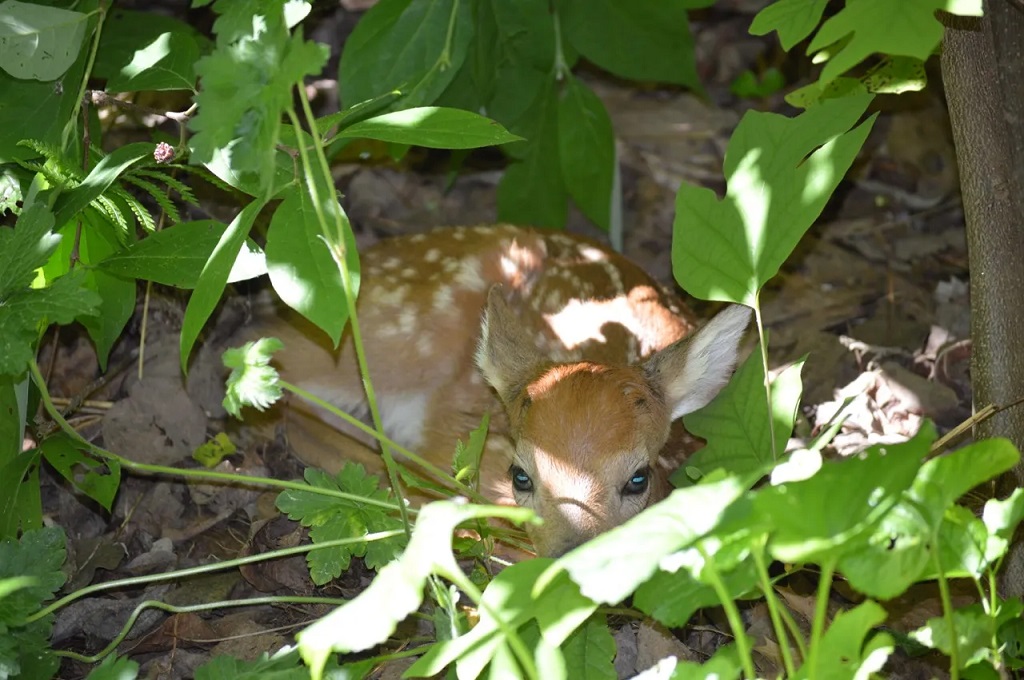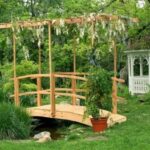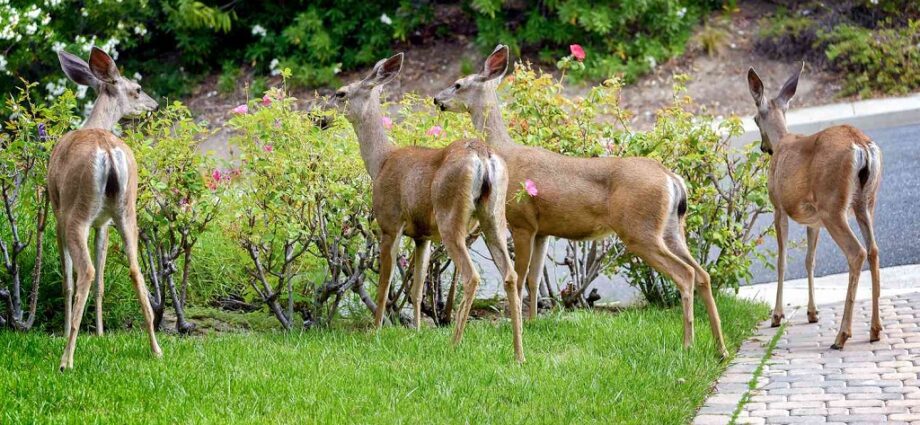Ah, the joy of gardening! Cultivating beautiful blooms, nurturing vibrant vegetables, and witnessing the fruits (or vegetables) of your labor – it’s a truly rewarding experience. But what happens when your picture-perfect garden becomes a buffet for unwanted guests – deer? These elegant creatures can quickly turn your green haven into a wasteland. Fear not, fellow gardener! With the right strategies and a bit of botanical know-how, you can create a deer-resistant fortress, protecting your precious plants and keeping those nibblers at bay.
Understanding Deer Behavior: Why They Love Your Garden
Deer are herbivores, with a strong preference for succulent greenery. Here’s what makes your garden so appealing to them:
- Tender Shoots and Leaves: Deer is drawn to the tender growth of young plants and the soft leaves of vegetables and flowering plants.
- Easy Pickings: Cultivated gardens offer readily available food compared to foraging in the wild.
- Lack of Predators: Your backyard might be a haven for deer, free from the threats they face in natural habitats.
Prevention is Key: Building a Deer-Resistant Garden
The best way to deter deer is to create a garden that’s simply not appealing to them. Here are some key strategies to create a deer-resistant fortress:
-
Plant Selection: The foundation of your deer-resistant garden lies in choosing plants that deer find unpalatable or even offensive. Here are some deer-resistant options:
- Trees and Shrubs: Arborvitae, lilac, boxwood, viburnum, butterfly bush, rosemary, lavender, and ornamental grasses.
- Flowers: Marigolds, daffodils, poppies, foxgloves, columbine, and some varieties of lilies.
- Vegetables: Hot peppers, onions, garlic, asparagus, herbs like rosemary and thyme, and rhubarb (deer dislike the leaves).
-
Plant Placement: Deer tend to avoid dense plantings. Group deer-resistant plants together to create a barrier and deter browsing.
-
Physical Barriers: Fences are a reliable deterrent, but the height matters. An 8-foot fence made of strong mesh is ideal. Deer can jump surprisingly high, so don’t underestimate their athleticism!
Natural Repellents: Sending an Unsavory Message
In addition to strategic planting, you can utilize natural repellents to further discourage deer:
- Homemade Sprays: Mix eggs, water, and hot sauce to create a spray with an odor deer dislike. Reapply this mixture after rain or every few weeks.
- Commercial Repellents: Several commercially available deer repellents utilize ingredients like rotten eggs, predator urine, or capsaicin (from chili peppers). Follow the instructions carefully and reapply as needed.
- Soap Bars: Deer dislike the smell of strong-smelling soaps. Hang bars of Irish Spring or other strong-scented soaps around the perimeter of your garden. Note: The effectiveness of soap as a repellent might be limited over time.

Beyond Plants: Additional Strategies to Outsmart Deer
Here are some additional tactics to consider when building your deer-resistant fortress:
- Remove Deer Attractants: Deer might be attracted to your garden by fallen fruit from nearby trees or piles of leaves and brush. Regularly clean up debris and remove any potential food sources.
- Rotate Strategies: Deer can become accustomed to repellents over time. Rotate your strategies by using different types of repellents or planting new deer-resistant varieties in your garden.
- Motion-Activated Sprinklers: These can be a humane way to startle deer and deter them from lingering in your garden.
Living with Deer: Peaceful Coexistence
While deterring deer is often the goal, sometimes peaceful coexistence might be the only practical option. If deer pressure is constant, consider:
- Sacrificial Zone: Plant a small area with deer favorites outside your main garden to distract them from your prized plants.
- Deer-Resistant Lawns: Replace your traditional lawn with deer-resistant groundcovers like creeping thyme or ornamental grasses.
Related: Cultivating Confidence: The Best Low-Maintenance Plants For Beginner Gardeners
Conclusion: A Garden Thriving, Deer-Free!
Deer can be a significant nuisance for passionate gardeners. But with careful planning, strategic plant selection, and a combination of deterrents, you can create a beautiful, thriving garden that’s a fortress against these curious herbivores. Remember, a deer-resistant garden is not just about keeping them out – it’s about creating a flourishing haven for your plants and the joy of witnessing their growth. So, get creative, choose your plants wisely, and enjoy the fruits (and vegetables!) of your labor in a deer-free paradise!










